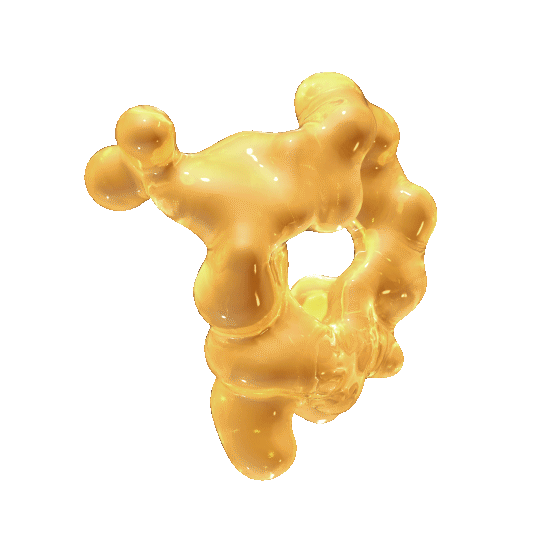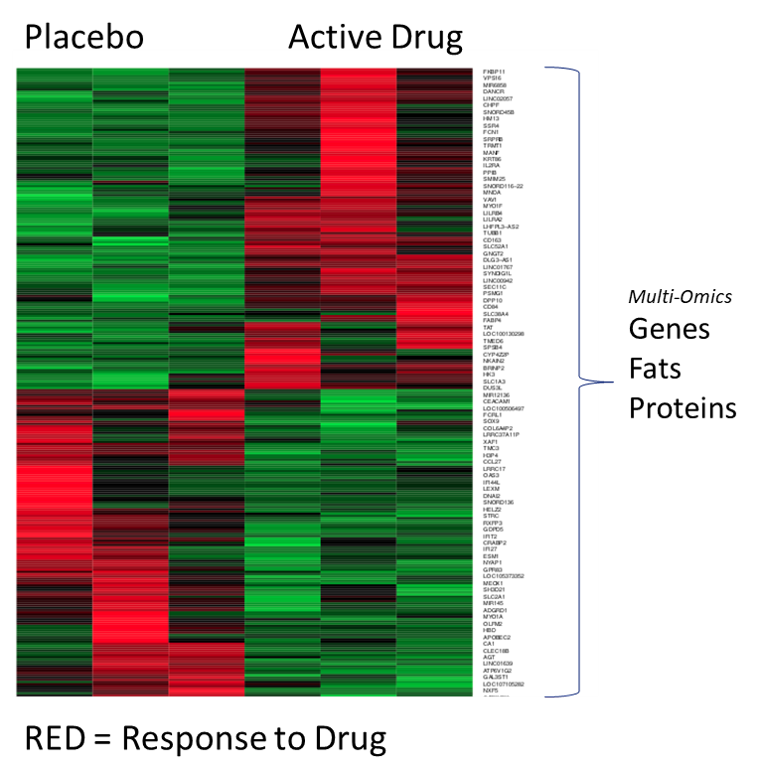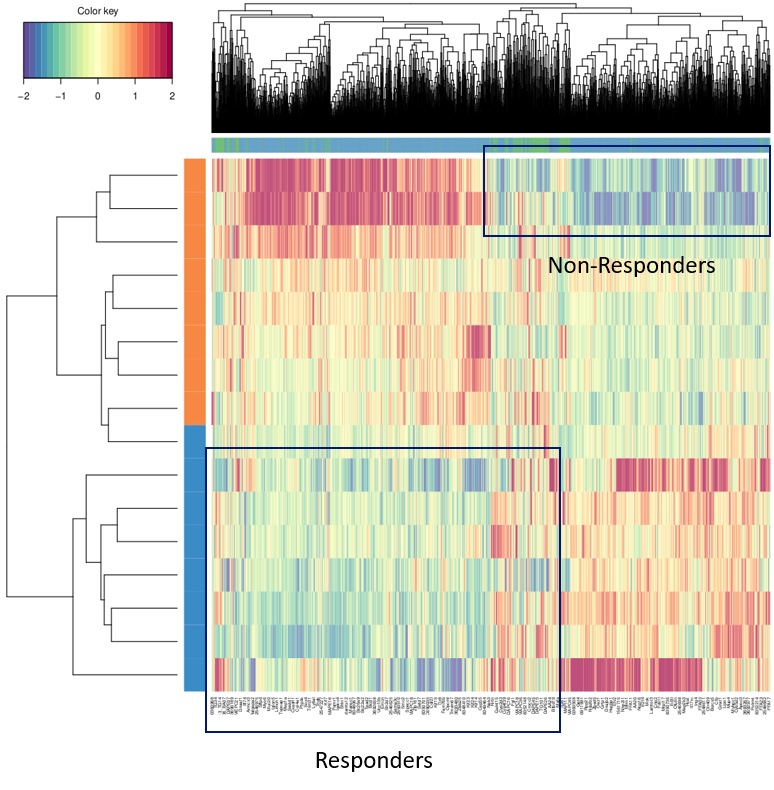Hepion’s AI-POWR™ platform provides integrative, multi-variate, systems-biology bioinformatic and big-data analysis of proprietary pre-clinical and clinical data with publicly-available multi-omic databases to facilitate improved drug target selection, clinical study design, and a priori-responder analysis.

AI-POWR™
AI-POWR™ combines Artificial Intelligence, Machine Learning, and Deep Learning to decode disease, develop targeted therapies, and to select patients that will respond to Hepion therapies
Artificial Intelligence
Machine Learning
Deep Learning
- Artificial intelligence is employed to accomplish—using computers—a wide variety of tasks which formerly required human intelligence
- Machine learning algorithms are being trained to evaluate drug targets, patient characteristics, and biomarkers to select the right drug for the right patients
- Deep learning techniques are used to analyze multiple datasets to identify disease- and patient-specific responsivity
AI-POWR™ Confers Strategic Advantages from Clinical Trials to Commercialization
Hepion is focused first on utilizing AI-POWR™ in its Phase 2a clinical program evaluating Rencofilstat in non-alcoholic steatohepatitis (NASH). NASH is a highly heterogenous disease underpinned by complex biochemical and pathological processes. AI-POWR™ has the potential to facilitate a precision medicine-based approach to treating NASH through its ability to identify Rencofilstat responders and inform the development of biomarkers. AI-POWR™ can be used to fine-tune patient selection for clinical trials or when designing clinical studies. In addition, AI-POWR™ can be used to to identify and evaluate additional potential indications for Rencofilstat to expand our footprint in the cyclophilin inhibition therapeutic space and beyond.
- Novel drug target selection
- Biomarker selection and validation
- Patient selection (a priori-responder analysis)
- De-risk clinical trials
- Improve drug development efficiency with cost savings

Rencofilstat
NASH is a Complex Disease
NASH is a highly heterogenous disease underpinned by complex biochemical and pathological processes. AI-POWR™ combines Hepion clinical and preclinical data with millions of other clinical findings across genomics, proteomics, metabolomics, transcriptomics, and lipidomics, to identify patterns that could allow for precision approaches to treating diseases.

Group or Cluster By Response
- Learn why both placebo and drug respond
- Identify key patterns that predict response
- Select those patients for clinical trials

Predict New Targets to Improve Outcomes
- Analyze both Public databases + Hepion Data using AI-POWR™ learning neural network
- Test reliability
- Add more data to improve predictive capabilities


